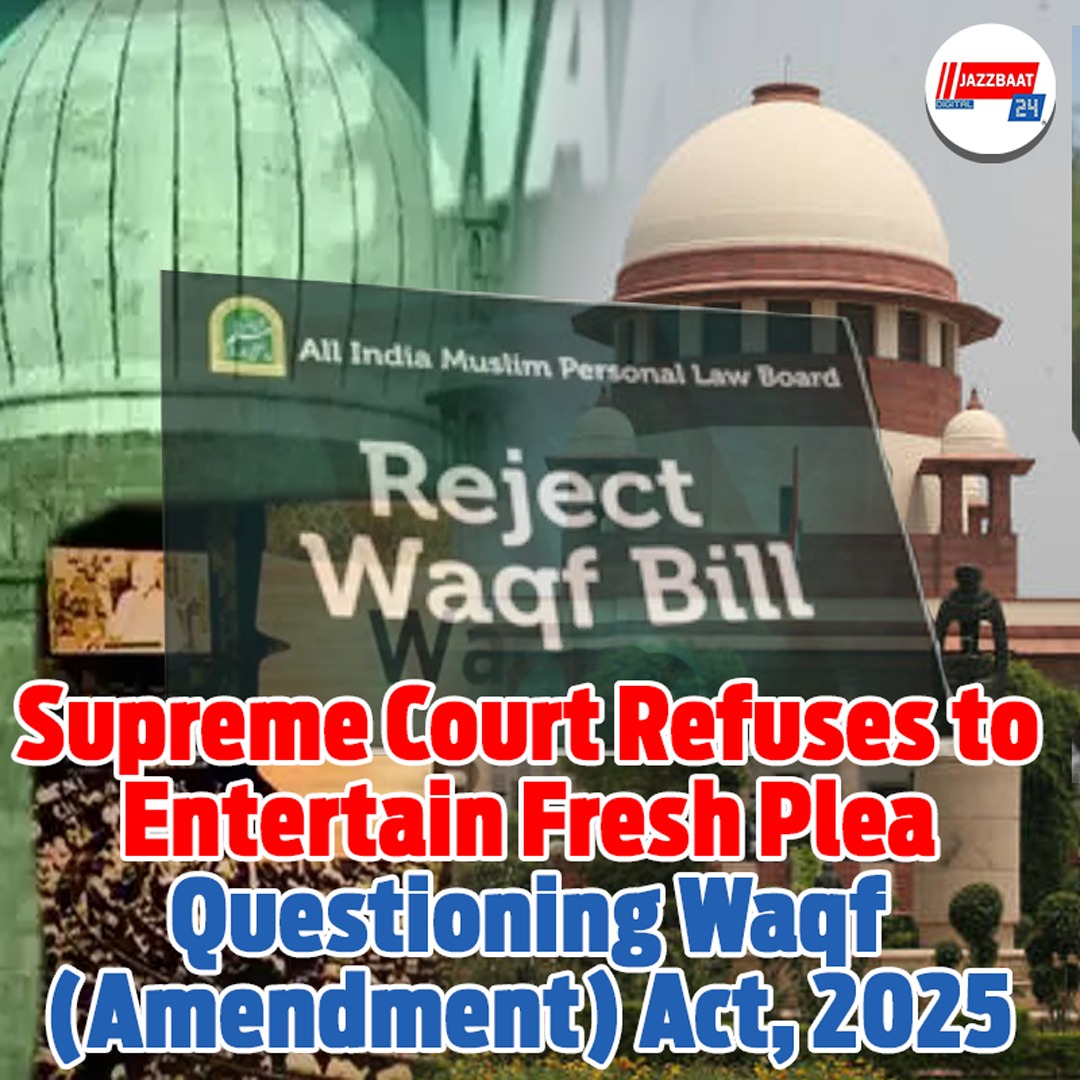
New Delhi, May 2, 2025 — The Supreme Court on Friday did not entertain a fresh plea challenging the constitutional validity of the Waqf (Amendment) Act, 2025. The issue came up during the hearing before a bench headed by Chief Justice Sanjiv Khanna, joined by Justices Sanjay Kumar and K V Viswanathan.
The bench reaffirmed its previous ruling to cap the number of cases it was going to hear in respect to the contentious amendment. More than 70 petitions have been presented thus far, but the supreme court has decided to concentrate on five key pleas to condense the hearing process to prevent duplication of arguments.
At Friday's short hearing, petitioner Mohammad Sultan's lawyer requested to submit a new plea based on new grounds. The Chief Justice sternly instructed the attorney to instead seek an intervention application so that he could put his arguments within the current structure.
If you have some other grounds, you can make an intervention application," Chief Justice Khanna instructed the counsel, making it abundantly clear that the court was not inclined to open the floodgates for further individual challenges.
The Waqf (Amendment) Act, 2025, has caused legal and political controversy throughout the nation. Opponents of the law claim that it violates constitutional rights and property laws, while proponents of the law assert that it aims to simplify and modernize waqf administration. The law has come under specific criticism for provisions concerning land use, administrative control, and the scope of powers vested in Waqf Boards.
The Supreme Court will start hearing the principal batch of petitions on May 5. Legal experts hope that the hearings would have larger implications, especially in the area of religious endowments and land rights.
In the meantime, the bench has exhorted all future petitioners to desist from filing duplicate or identical petitions and rather opt for becoming a part of the proceedings through formal interventions, if they have new or different legal arguments to present.